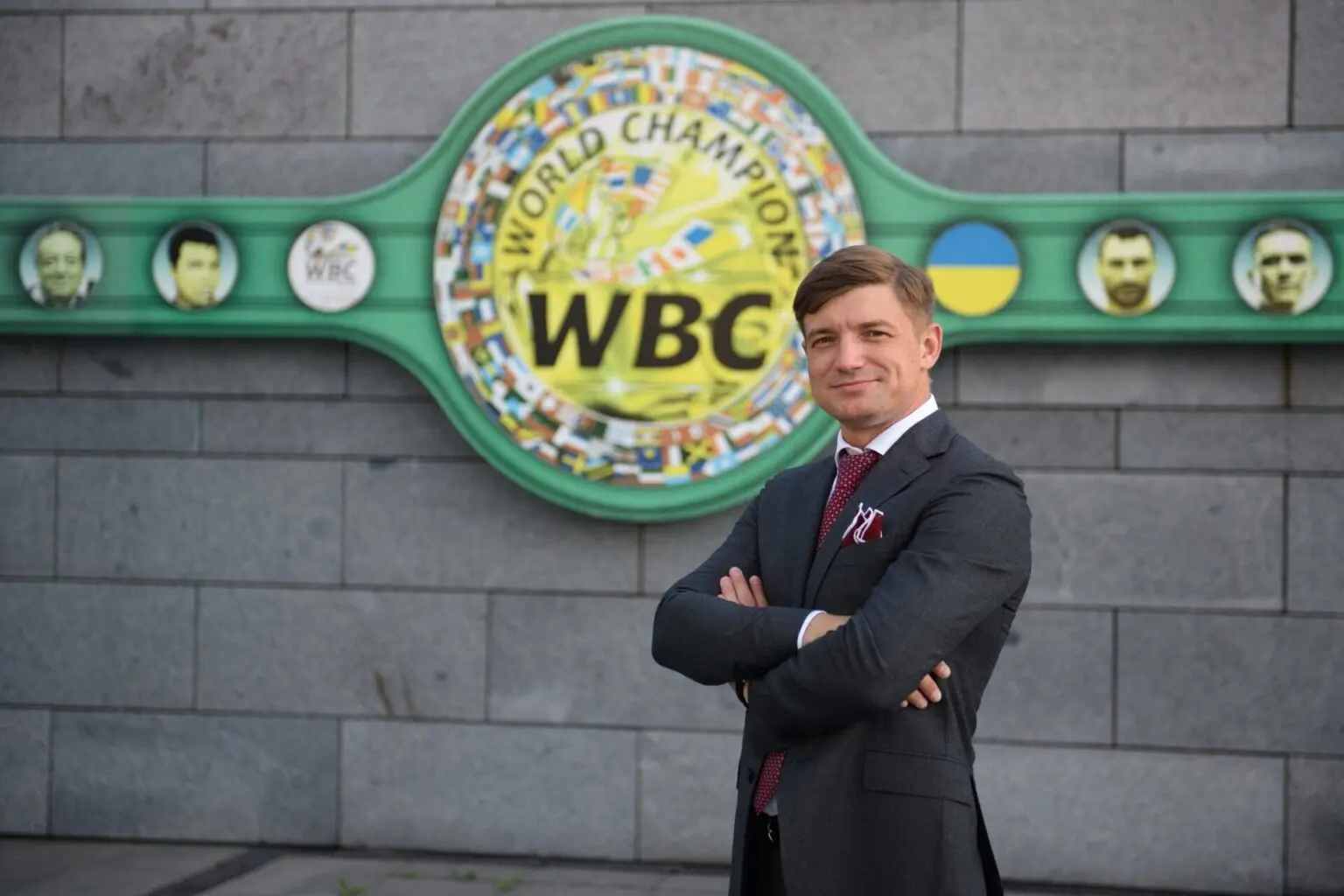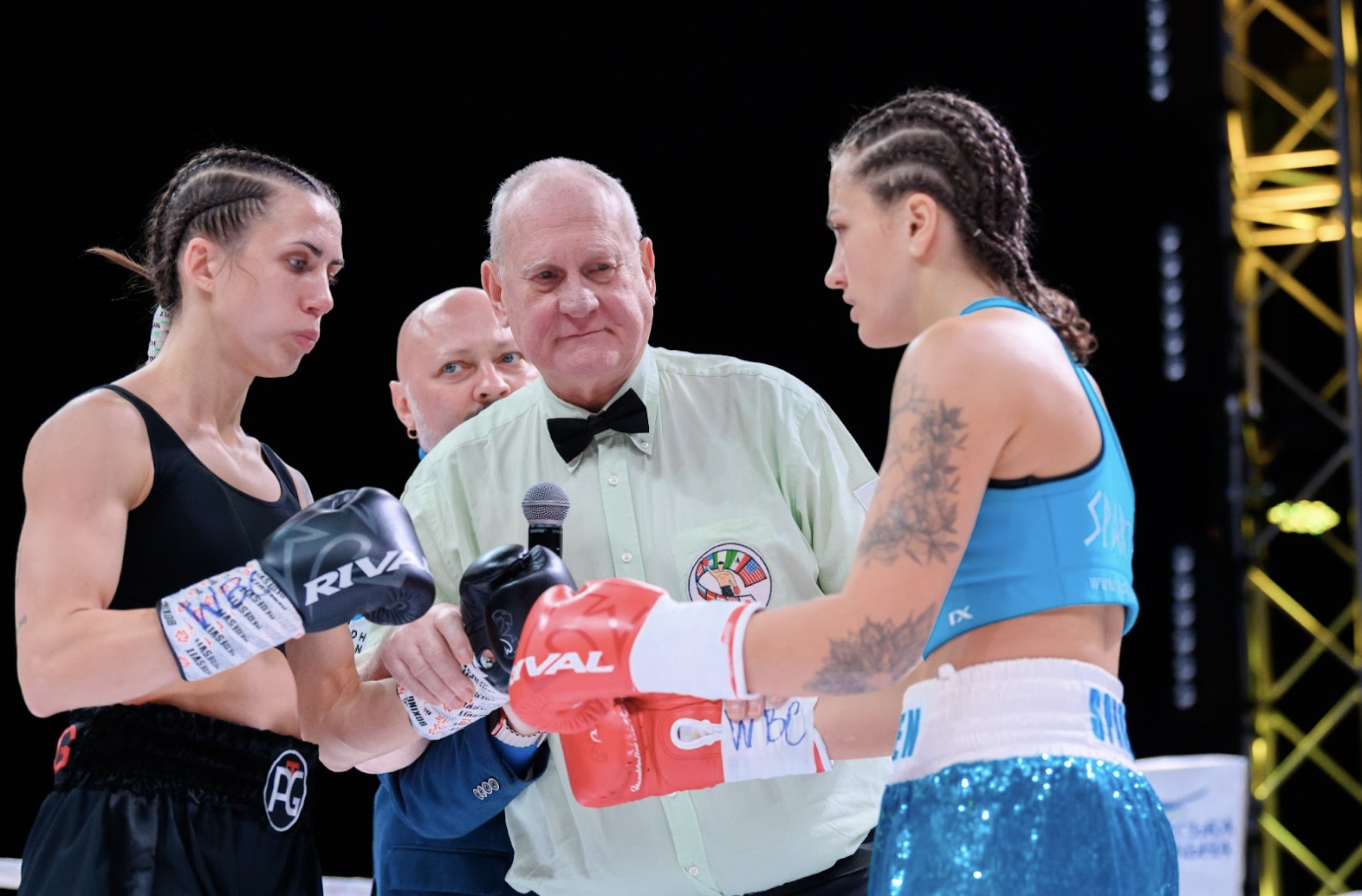
With half a round to go in Saturday’s Christian Mbilli-Sergiy Derevyanchenko fight, ESPN analyst Tim Bradley, who’d been calling for Derevyanchenko’s corner to stop the contest from the seventh round on, said of the Ukrainian veteran, with heartfelt concern and a measure of exasperation: “He needs a knockout to win. What is it, pride? Are we fighting for pride?”
Short answer: Yes. That’s exactly what it is. It’s pride.
And pride can be something worth taking punishment for.
Every situation in this brutal sport is unique. Every decision of whether and when to stop a fight requires context. It’s a risk/reward equation that is perpetually undergoing recalculation — like watching live-betting odds adjust on the fly. One moment it’s ever so slightly worth the risk. The next moment it’s not.
In the context of this fight, in the context of Sergiy Derevyanchenko’s long, noble career in boxing, I feel strongly that Bradley had it wrong. There is always risk in boxing. But I don’t think the risk Derevyanchenko was facing — particularly when there was just one round to go, or less than that — outweighed the pride on the line for him, the pride associated with avoiding crossing over from identifying as a boxer who’d never been stopped to one who had.

The film Raging Bull captured a fighter’s pride perfectly, in the depiction of the climax of “The St. Valentine’s Day Massacre” between Sugar Ray Robinson and Jake La Motta:
“Hey, Ray. I never went down, Ray. You never got me down.”

The real-life La Motta lived another 66 years after that fight. For as long as he remained lucid — remarkably, and largely by random genetic happenstance, most of those 66 years — La Motta got to carry that pride with him.
Pride does not and should not always outweigh the price a pugilist pays. Again, every situation is to be judged on all of the assorted direct and peripheral factors that play into it. But Derevyanchenko, never badly hurt by Mbilli, defending himself to the end, fighting back all the way, showing absurd heart by fighting the final 70 per cent of the contest with just one functioning arm due to a left biceps injury, was a clear example of a boxer for whom it matters to be able to say his personal version of Robert De Niro’s line.
For Derevyanchenko, the line would be something like: “They never stopped me. I fought ‘em all, and nobody ever stopped me.”

That’s not always a good reason to fight on. But for 38-year-old Derevyanchenko, who will not be doing this much longer — in fact, who may already be finished doing this, for all we know — this was one fight worth finishing even when it was clear he couldn’t win it.
I recognize this may not be a popular opinion. It’s definitely not going to be popular with Bradley, a man I respect deeply and someone who, unlike me, has been through the physical wars. I know that more than a decade later, Bradley still has mixed feelings about the 12 rounds of punishment he absorbed against Ruslan Provodnikov — as he should. It had short-term negative impacts on him and medium-term negative impacts on him, and though he seems fine now, it may prove to have long-term negative impacts on him. It was also the Fight of the Year in 2013 and is arguably the difference between him being the Hall of Famer he is and not quite getting the votes to earn enshrinement in Canastota.
If anyone understands the complicated question of risk vs. reward in boxing and understands the blurry line between bravery and stupidity, it’s Tim Bradley. He had every right and every reason to express concern for Derevyanchenko in the final four rounds the way he did.
He started in the seventh. “This is hard to watch. Very hard to watch. … If I was in his corner right now, I would look out for him. I would let him live to fight another day.” Just seconds later, Derevyanchenko had his best sequence of the fight and made Bradley wonder out loud if the one-armed man had hurt Mbilli. Of course, that doesn’t mean Bradley was wrong to want the fight stopped moments earlier. And when Mbilli landed several strong shots at round’s end, Bradley was back on message: “Save him. Save him. Come on.”

In round eight, more of the same, as he talked to broadcast partner Joe Tessistore: “Tess, he’s definitely outweighed, smaller guy in there in Derevyanchenko, the older fighter, been through a whole lot of wars, Tess. Like, it’s not worth it, Tess. I’m telling you, it’s not worth it for him to be still in this fight handicapped the way he is. Somebody needs to get in there and save Derevyanchenko from himself, because he’s not going to stop, Tess.”
Derevyanchenko’s corner gave strong consideration to stopping it between rounds eight and nine, and head trainer Andre Rozier said as the bell was about to ring, “I’ll give him one more. I’ll give him one more. I’ll stop it if I see anything big.”

From Bradley in the ninth: “He needs a knockout to win the fight. Think about that. A knockout to win this fight. Why continue to allow him to take punishment?” Derevyanchenko continued firing hard with the one good wing he had, but Bradley was right that the Ukrainian was an extreme longshot to land the kind of punch that could win him the fight.
Derevyanchenko finished the round using his legs and proved elusive, and between the ninth and 10th rounds, Rozier was no longer giving much thought to surrendering. He apparently did not “see anything big” to convince him his boxer was at greater risk than any other boxer would be after nine hard rounds.
Bradley banged the drum throughout the final round: “What do you gain from it, Tess? What do you gain from it? … Tess, we know how tough Derevyanchenko is. We understand how tough he is. But why take this punishment? It just doesn’t add up to me.” And midway through the round, he asked the question that led off this article: “What is it, pride? Are we fighting for pride?”
I don’t like leaning on results-oriented analysis, but Derevyanchenko did flat-out dominate the final 25 seconds of the fight. It was never going to prevent him from suffering his sixth professional loss. But it was a moment of glory, a moment indicative of the sort of warrior he is, a moment that he can carry with him for the rest of his days. “I take my hat off to Derevyanchenko, I really do,” Bradley said at the final bell.
Look, reasonable people can disagree about whether a fight needs to be stopped. Bradley was on the side of this that is always easy to justify. You will never risk being seen as the heel by looking out for a fighter’s health.
There is, on the other hand, risk in writing columns or posting tweets that reflect a Steve-Smoger-esque attitude to halting fights. If this column goes up, and later we learn that Derevyanchenko is suffering trauma beyond just what happened to his left arm, I will be on the receiving end of I-told-you-so’s. And that potential will linger for years. I hope none of this comes to pass, obviously, but if we learn a decade from now that he’s slurring his words, my take on fighting for pride will have aged poorly.
It’s like that cliché boxing people trot out every so often, typically after a referee issues a premature stoppage: “Better one punch too soon than one punch too late.” That phrase is a cop-out. Of course it’s better to stop a fight one punch too soon than one punch too late. But the goal should be to stop it at exactly the right time. If we get in the habit of automatically excusing the too-early stoppages because they’re less problematic than the too-late stoppages, we’re encouraging a ref like Tony Weeks to halt a fight like Rolly Romero vs. Ismael Barroso, because, well, he was looking out for fighter safety.
With Mbilli-Derevyanchenko, you could make the case either way. Echoing the Bradley position, promoter Lou DiBella tweeted, “His corner letting Derevyanchenko take that brutal beating, for NO good reason, is disgraceful. Sorry ... idgaf. No excuse.” Partially aligned with my stance, historian and writer Lee Groves wrote, “Derevyanchenko fought on not to win a bout, but to secure his future peace of mind. He earned that and he lived up to the warrior’s code. That said, he was allowed to fight handicapped and to absorb unnecessary punishment.”
The value of the “peace of mind” Groves noted should not be ignored. As I get older, as my body betrays me in various ways, and particularly as I watch my parents’ generation struggle physically and decline mentally and face mortality very directly, I no longer live under youthful illusions. Whether you took thousands of punches or not, the body will break down, quality of life will in many ways diminish, and nothing, in terms of a long life or a healthy life, is guaranteed.
For all of us, peace of mind — though it shouldn’t be pursued recklessly and irresponsibly — is worth taking some risks to secure.
For Derevyanchenko, who didn’t have a zero in the loss column to protect but who did have a zero in the “KO by” column to protect, I don’t believe the risk ever outweighed what he was fighting for.
The details matter. If this had been a scheduled 12-rounder, with the finish line still well out of sight after the seventh, eighth, or ninth, the risk wouldn’t have been worth it. If Derevyanchenko had shown obvious signs of decline during this or previous fights, of not being defensively capable anymore, I would have felt differently. If he’d been knocked out just once before and didn’t have a chance to be remembered specifically as the hardest-luck “nearly man” of his era, I would have reached a different conclusion.
Each situation is distinct, as is each injury. In the fight immediately before this one on Saturday night, heavyweight Arslanbek Makhmudov had a grotesquely swollen left eye that led to a doctor-advised stoppage at the start of the eighth round, and if anything, that one came a round or two late. The injury had compromised Makhmudov’s ability to defend himself, and he didn’t have some degree of enduring personal legacy on the line in the same way Derevyanchenko did.
Usually, once a boxer reaches the point in a fight where there’s no realistic path to victory, I say there’s no sense letting that fight go on. That was Tim Bradley’s mindset watching Mbilli-Derevyanchenko, and I understand and appreciate it. But I’m on the opposite side of this one.
Derevyanchenko fought Gennady Golovkin. He fought Jermall Charlo. He fought Daniel Jacobs. He fought Jaime Munguia. He fought Carlos Adames. And he fought Christian Mbilli. None of them stopped him.
Not that there would be any shame in it if one of them had.
But there’s unique pride to be found in knowing none of them did.
Until the bitter end on Saturday, in a fight he couldn’t win, Derevyanchenko still had something of real value worth fighting for.
Source: BoxingScene
Author: Eric Raskin

Interview of the WBC Ukraine president Mykola Kovalchuk for "The Ukrainian Review"

For the first time in Ukrainian history, two Ukrainian women, Anastasiia Petrenko and Oksana Bondarenko, competed for the WBC titles.
